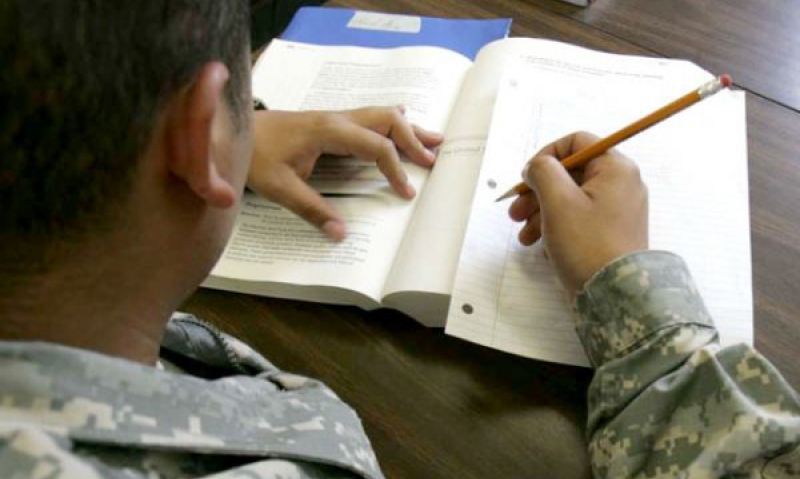
Processing time for benefits claims has been reduced from 48 to 13 days for new student enrollments.
The American Legion is expressing appreciation for the progress made by the Department of Veterans Affairs in its implementation of the Post-9/11 GI Bill and payment of its benefits. In a Jan. 31 news media conference call, VA officials detailed what one characterized as a sweeping “culture change” that has facilitated the streamlining of new GI Bill benefits processing.
With new personnel, training and management techniques (plus the integration of computer-based automation) VA’s Acting Under Secretary for Benefits Mike Walcoff said the processing time for benefits claims has been reduced dramatically – for instance, from 48 to 13 days in the case of new student enrollments.
VA had been the target of much criticism just after the Post-9/11 GI Bill went into effect in August 2009. Chronically late school tuition and housing allowance payments caused a number of veterans and their families significant hardship. Complaints about VA’s seeming inefficiency and lack of readiness were rampant.
“We were in an area that was completely unknown,” said Walcoff, citing the complexity of the new legislation as compared with the terms of the older, much simpler Montgomery GI Bill. For instance, under the old GI Bill, payments were issued directly to a student in flat-rate fashion until the maximum payout was reached. The Post-9/11 GI Bill requires VA to issue payments to the student’s school, based upon precise tuition and housing costs, thus complicating VA’s job and increasing its workload substantially.
Now, largely through newly developed and implemented automation systems, VA says it’s meeting the challenge.
“We appreciate the hard work, dedication and technical expertise VA is demonstrating in meeting the vastly increased workloads presented by the new GI Bill,” said Joe Sharpe, director of The American Legion’s Economic Division. “We, along with our fellow advocates, have been pushing VA to solve their problems and ease the economic burdens on our student veterans. It’s good to see that, so far, VA is responding well. Our veterans pursuing higher education need to be concentrating on their studies, rather than worrying about receiving their benefits in a timely manner.”
VA’s labors with regard to educational benefits are far from complete. On Aug. 1, a new, improved set of GI Bill benefits takes effect; many with the urging of The American Legion. They will, among other things, lift the payment cap on state school tuitions, impose a cap on payments to private schools, issue housing allowances to students pursuing internet-based distance learning, suspend some so-called “interval payments” during long school-year breaks, and expand benefits to those pursuing professional licensing and certification training. VA says it is continuing to develop methods and methodology to handle the new workloads.
“We will, of course, be monitoring developments closely to make sure that progress continues to be made,” Sharpe said. ‘The last thing we want is a repeat of the hardships suffered by our veterans during the first year of the new GI Bill.”
- Education

